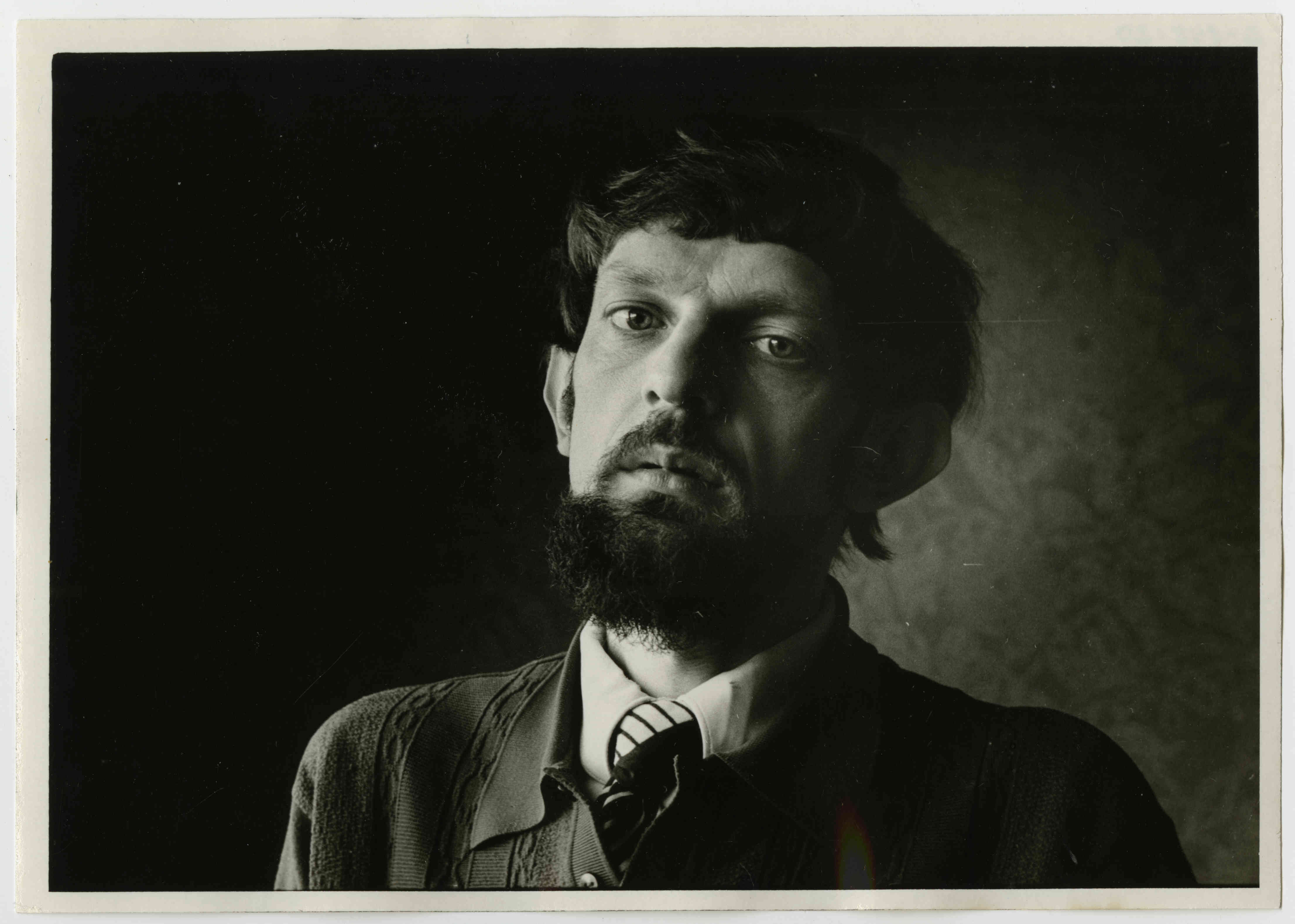
Jaan Paavle
Jaan Paavle (22 IV 1940 – 9 VIII 2010) was a poet and artist.
Paavle was born in Tartu and spent his childhood in Kuremaa parish in Tartu County. He studied at Varbevere primary school in Tartu County from 1948–1953, later at Tartu Evening Secondary School No. 1, which he completed in 1961. For a short time, he also studied at Tartu Art School. In 1975–1980, Paavle studied at the State Art Institute of the Estonian SSR from which he graduated specialising in ceramics. He worked at Tartu Instrument-manufacturing Plant, as a supplies agent at Tartu State University, later as a librarian, archivist and engineer at several institutions, as an academic affairs specialist at the State Art Institute and finally as a guard at the Estonian Museum of Applied Art and Design. While living in Tartu, he mingled with Tartu intellectuals, including Uku Masing and Artur Alliksaar, who influenced him. From 1964-1973, he was married to poet Viivi Luik.
Because of his bohemian attitude to life and irreconcilable conduct towards the prevailing circumstances, he was overshadowed by other young poets of the “golden 1960s” generation. He succeeded in publishing his first poetry collection, Vabaarmastus (‘Free Love’) in 1972. In the 1970s, Paavle wrote poetry and painted but also started making experimental amateur films and received greater attention in this area than in poetry or painting.
Jaan Paavle’s second poetry collection Klaasinuga (‘Glass Cutter’) was published in 1977, and the third, Vaatlusandmed (‘Observation Data’) in 1981. In these books, childhood memories and influences of impressions from art prevail. In the fourth poetry collection Arveraamat (‘Account Book’, 1988), spontaneous fervour combined with unshakable feeling for form have resulted in extraordinarily strong and passionate poems. When the four poetry collections published in the 1970s–1980s are compared, a trend from free verse towards stricter and more classical verse forms can be noticed.
In the new century, Jaan Paavle published bulkier poetry collections Tulemasin (‘Cigarette Lighter’, 2002) and Jumalamängud (‘God Games’, 2004). Critic Kalev Kesküla called Paavle a poet with a broad range who connects the modern classics (Rummo, Runnel, Luik) with an undertone of the Arbujad grouping of the 1930s. So, his poetry can offer something for everyone. But as noted in the subheadings of the two last poetry collections, they include not only poetry but also artistic metatexts.
Paavle also deserved attention as a performance and video artist who shocked the audiences with his uncompromising sexual openness and introduced innovative trends to modern Estonian art. In the 1990s, Paavle participated in dozens of art performances together with Jaan Toomik, staged video installations and held solo exhibitions.
L. P. (Translated by I. A.)
Books in Estonian
Poetry
Vabaarmastus. Tallinn: Eesti Raamat, 1972, 56 lk.
Klaasinuga: luuletused 1973–1977. Tallinn: Eesti Raamat, 1977, 84 lk.
Vaatlusandmed 1977–1980. Tallinn: Eesti Raamat, 1981, 110 lk.
Arveraamat 1980–1987. Tallinn: Eesti Raamat, 1988, 141 lk.
Tulemasin: valik ilmumata tekste ja metatekste. Tallinn: Umara, 2002, 110 lk.
Jumalamängud: tekstivalimik (luule, proosa, metatekst) 1962–2004. Tallinn: J. Paavle, 2004, 174 lk.



